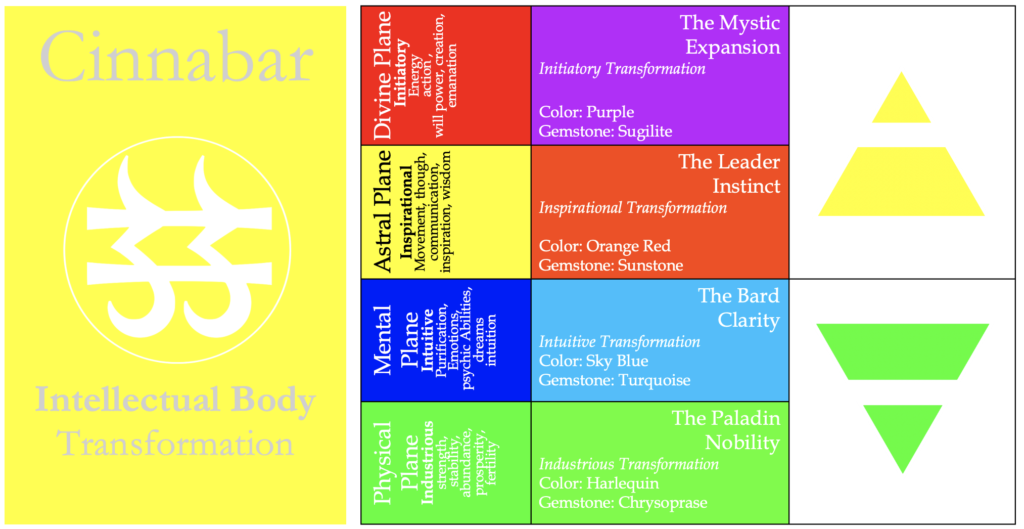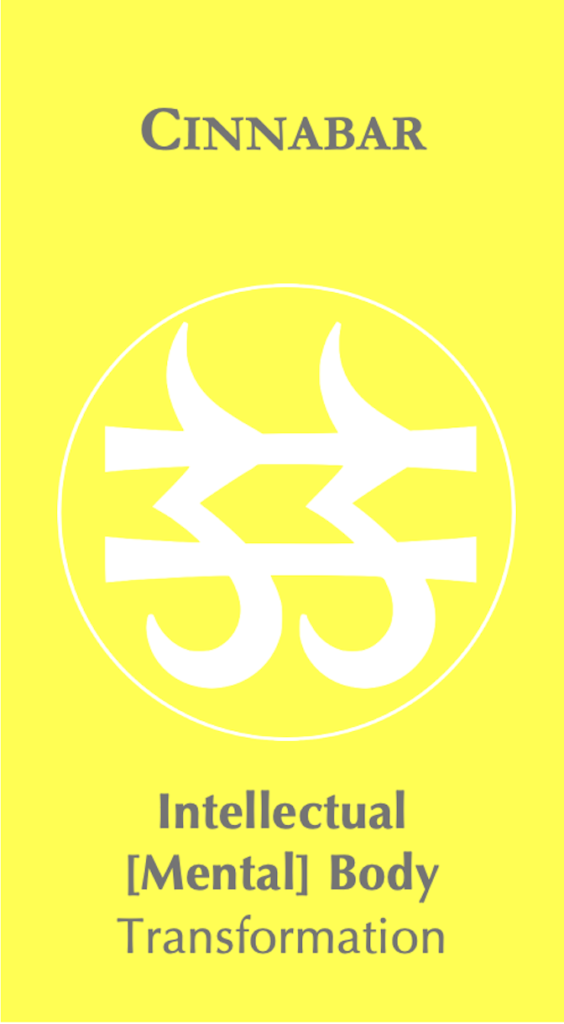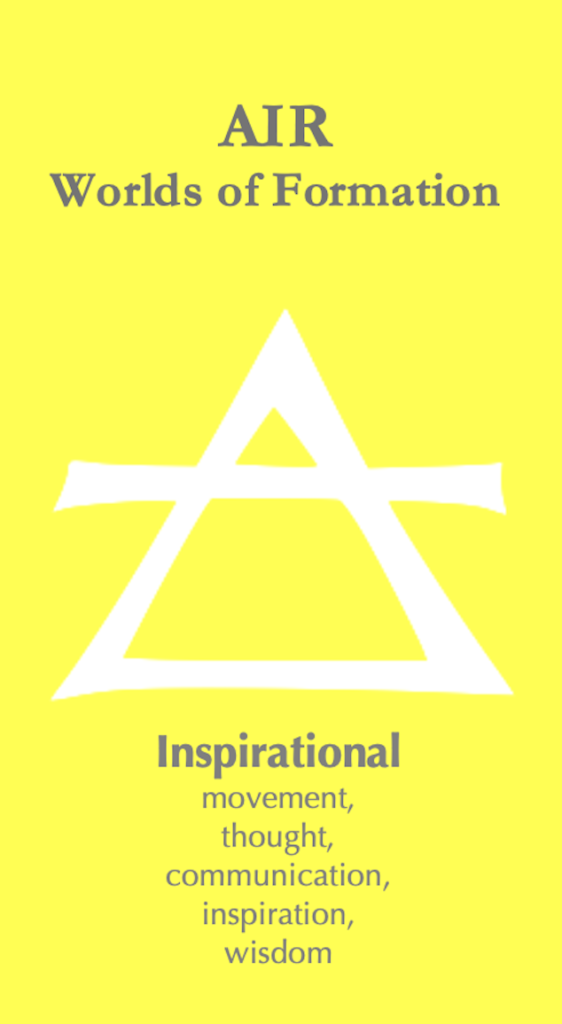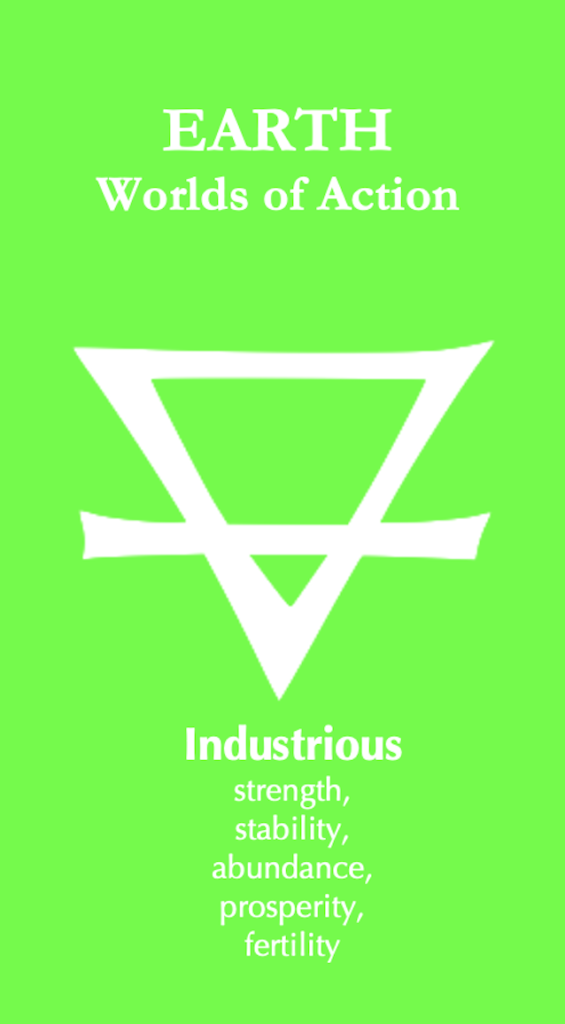Intellectual Body
INTELLECTUAL or MENTAL BODY
[Intelligence]

The intellectual body, also known as the “Buddhic Body” or “Mental body,” embodies higher mental faculties like intuition and wisdom, serving as a bridge between lower mental faculties higher spiritual realms. It enables access to heightened awareness and understanding beyond ordinary perception, fostering qualities like discernment and clarity. Development through practices such as meditation and contemplation facilitates spiritual growth, leading to the realization of higher truths. Ultimately, it channels divine intelligence, guiding individuals toward spiritual evolution and the unity with the Divine.
Exploring Esoteric Intellectual Development: A Journey Beyond the Ordinary
The quest for knowledge has always been a central theme in human history, but beyond the realms of conventional education lies a path less traveled: esoteric intellectual development. This journey delves into the hidden, mystical, and profound aspects of knowledge, offering insights that transcend ordinary understanding. Let’s explore what esoteric intellectual development entails, its significance, and practical steps to embark on this transformative path.
Understanding Esoteric Intellectual Development
Esoteric intellectual development refers to the pursuit of knowledge and wisdom that is not readily accessible through conventional means. This involves exploring ancient texts, mystical traditions, spiritual practices, and metaphysical studies. Unlike mainstream intellectual pursuits, esoteric development seeks to uncover deeper truths about the universe, the self, and the nature of reality.
Key Components of Esoteric Intellectual Development
- Ancient Wisdom and Texts:Studying sacred texts, such as the Kabbalah, the Bhagavad Gita, the Tao Te Ching, and the works of mystics like Rumi and Hermes Trismegistus. These writings offer profound insights into the nature of existence and the human spirit.
- Mystical Traditions:Engaging with various mystical traditions, including Sufism, Gnosticism, Hermeticism, and Alchemy. These paths provide unique perspectives and practices aimed at spiritual enlightenment and intellectual expansion.
- Metaphysical Studies:Exploring topics like astrology, numerology, sacred geometry, and the study of archetypes. These fields examine the hidden patterns and symbols that underpin reality.
- Meditation and Contemplation:Developing practices that enhance inner awareness and connection to higher consciousness. Techniques such as mindfulness, transcendental meditation, and guided visualization can deepen one’s understanding and insight.
- Personal Transformation:Embracing the process of inner alchemy, where personal growth and transformation are seen as integral to gaining esoteric knowledge. This often involves shadow work, emotional healing, and the cultivation of virtues.
The Significance of Esoteric Intellectual Development
Engaging in esoteric intellectual development offers numerous benefits, both personally and collectively:
- 1. Enhanced Self-Awareness:Delving into esoteric studies fosters a deeper understanding of oneself. It encourages introspection and self-exploration, leading to greater self-awareness and personal growth.
- Broadened Perspective:Esoteric knowledge expands one’s perspective beyond the material world, encouraging a holistic view of life. This broader outlook can lead to greater empathy, compassion, and a sense of interconnectedness with all beings.
- Spiritual Enlightenment:The ultimate goal of esoteric studies is often spiritual enlightenment or awakening. This transcendent state brings profound peace, joy, and a deep sense of purpose.
- Creative Inspiration:Many artists, writers, and innovators have drawn inspiration from esoteric knowledge. It can unlock new realms of creativity and expression.
- Community and Connection:Joining communities or groups focused on esoteric studies can foster meaningful connections with like-minded individuals. These relationships can provide support, encouragement, and shared learning experiences.
Practical Steps for Esoteric Intellectual Development
Embarking on this journey requires dedication, openness, and a willingness to explore the unknown. Here are some practical steps to get started:
- Set Intentions:Begin with a clear intention. Reflect on why you are drawn to esoteric studies and what you hope to gain from this pursuit. Setting intentions can guide your journey and keep you focused.
- Study and Research:Start with foundational texts and reputable sources. Create a reading list of key esoteric works and commit to regular study. Consider joining online courses, workshops, or study groups.
- Practice Meditation:Incorporate regular meditation or contemplation practices into your routine. These practices will help you develop inner stillness and receptivity to higher knowledge.
- Join a Community:Seek out communities or groups that share your interest in esoteric studies. Participating in discussions and group activities can enhance your learning and provide valuable support.
- Keep a Journal:Document your experiences, insights, and reflections. Journaling can help you track your progress and deepen your understanding.
- Seek Mentorship:If possible, find a mentor or guide who is experienced in esoteric studies. A mentor can provide personalized guidance, support, and wisdom.
- Embrace Lifelong Learning:Esoteric intellectual development is an ongoing process. Stay curious, open, and committed to continual learning and growth.
Conclusion
Esoteric intellectual development is a profound and transformative journey that opens doors to hidden realms of knowledge and understanding. By exploring ancient wisdom, mystical traditions, and metaphysical studies, you can unlock deeper truths about yourself and the universe. This path not only enriches your intellect but also fosters spiritual growth, personal transformation, and a greater sense of connectedness. Embrace the journey, and let the pursuit of esoteric knowledge illuminate your mind and spirit.


Cinnabar
Alchemists revered cinnabar for its transformative properties, capable of undergoing various chemical reactions and symbolizing the potential for spiritual or material metamorphosis. It played a central role in alchemical experiments and processes dedicated to transmutation, purification, and the pursuit of the philosopher’s stone.
Cinnabar corresponds with Beriah, the realm following Atzilut. Beriah represents the domain of creation where divine emanations manifest as individual entities and structures, contributing to the formation of spiritual beings, angels, and archetypal forms of existence.
Cinnabar aligns with the Plant Kingdom, symbolizing a transitional phase in the alchemical journey characterized by growth, regeneration, and the emergence of life from inert or material states. In alchemical symbolism, it embodies the transformative nature of consciousness, fluidity, and adaptability, serving as the intermediary stage between the physical and spiritual realms, facilitating change and transition.
Cinnabar corresponds with the Intellectual Body, also known as the Mental Body. The Mental Body encompasses the realm of thought, intellect, and higher mental faculties, serving as the seat of rational thinking, analysis, and conceptual understanding. Operating on a higher level of consciousness than the Vital Body, the cultivation of the Intellectual Body in spiritual development involves expanding mental capacities, gaining wisdom, and nurturing clarity of thought through processes such as reasoning, problem-solving, and abstract thinking.
Esoteric and alchemical properties attributed to Cinnabar:
Cinnabar, a mercury sulfide mineral with a vibrant red color, that holds significance in both esoteric and alchemical traditions.
Esoteric and Alchemical properties associated with Cinnabar:
Transformation and Transmutation: Cinnabar is often linked to transformation and transmutation in alchemy. It is symbolic of the alchemical process, signifying the turning of base materials into refined or elevated states.
Mercurial Properties: Given that cinnabar contains mercury, it is associated with the mercurial aspect in alchemy. Mercury is a symbol of fluidity, volatility, and the transformative nature of the alchemical process.
Philosopher’s Stone: Cinnabar has been considered a potential ingredient in the creation of the philosopher’s stone, a legendary substance in alchemy believed to have the power to transform base metals into gold and confer spiritual enlightenment.
Spiritual Awakening: In esoteric traditions, cinnabar is associated with spiritual awakening and heightened consciousness. Its use or association in rituals and practices could is a means of accessing deeper spiritual insights.
Protection and Warding: Cinnabar has been used for protective purposes in some esoteric practices. It is employed as a talisman or amulet to ward off negative energies and promote spiritual protection.
Connection to Venus: Cinnabar is associated with the planet Venus in traditional astrology and alchemy. The planetary correspondence adds additional symbolic layers to its esoteric properties, connecting it to aspects such as love, beauty, and harmony.
Symbolic Associations: Cinnabar is associated with various symbols, including the phoenix, which is a mythological bird that symbolizes resurrection and transformation. The red color of cinnabar is reminiscent of the phoenix’s fiery nature.
Esoteric and Alchemical Purpose of the Intellectual/Mental Body:
Mental Faculties: The intellectual body could be seen as a subtle layer associated with mental faculties, including thought processes, reasoning, and cognitive abilities. It may represent the refined or spiritualized aspects of the mind.
Information Processing: This body is linked to the processing of information and the assimilation of knowledge. It is associated with how an individual acquires, analyzes, and synthesizes information on both mundane and spiritual levels.
Wisdom and Discernment: The intellectual body is connected to the development of wisdom and discernment. It represents the capacity to distinguish between truth and illusion, understanding higher concepts beyond conventional knowledge.
Learning and Growth: Like other subtle bodies, the intellectual body is considered a vehicle for learning and growth. It symbolizes the soul’s journey through various lifetimes, accumulating intellectual experiences and insights.
Connection to Higher Mind: In certain esoteric traditions, the intellectual body is seen as a bridge to the higher mind or divine intelligence. It represents the soul’s capacity to attune itself to higher levels of consciousness and universal knowledge.
Balance with Intuition: The intellectual body is complemented by the intuitive or spiritual aspects of the being. A balanced integration of intellectual and intuitive faculties contributes to a more holistic understanding of reality.
Expression of Ideas: This body is associated with the expression of ideas, whether through communication, creative endeavors, or intellectual pursuits. It encompasses the ways in which an individual shares and contributes intellectually to the collective consciousness.










